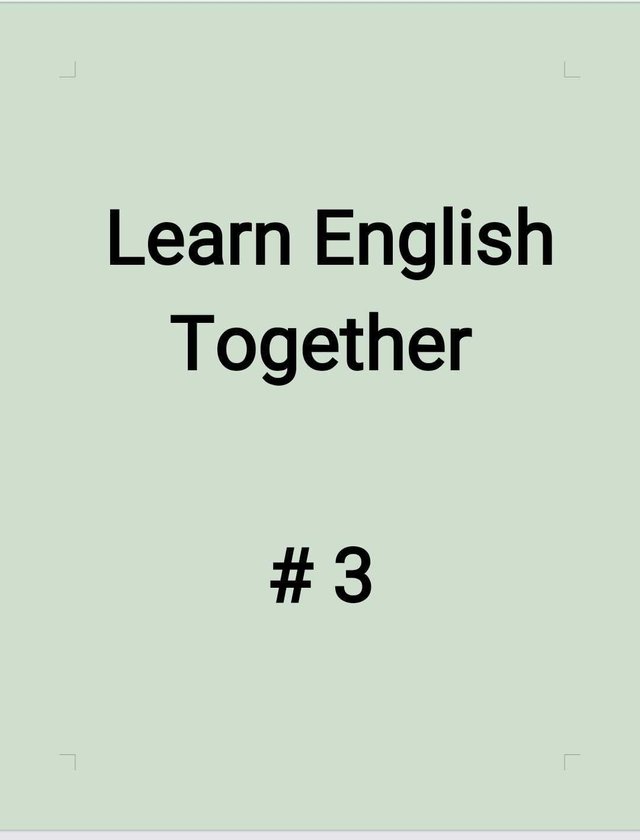
Good morning friends.
Today I continue the previous post to section three. Here are some easy examples for you to practice wherever you are. for those of you who do not know, maybe this can be useful.
Mistakes are often made by using the wrong preposition after certain words.The following list includes the words which most often give trouble.
Using The Wrong Preposition.
No doubt (n) of or about, not for.
Don't say: I've no doubt for his ability.
Say: I've no doubt of (or about) his ability.
Note: Doubtful of: I am doubtful of his ability to pass
Dressed in, not with.
Don't say: The woman was dressed with black.
Say:The woman was dressed in black.
Note:The woman was in black is also correct.
Exception to, not of.
Don't say: This is an exception of the rule.
Say: This is an exception to the rule.
Note: We say with the exception of: She liked all her subjects with the exception of physics.
Exchange for, not by.
Don't say: He exchanged his collection of matchboxes by some foreign stamps.
Say: He exchanged his collection of matchboxes for some foreign stamps.
Note: In exchange for H e gave them his old car in exchange for a new one.
Fail in, not from.
Don't say: Steven failed from maths last year.
Say: Steven failed in maths last year.
Full of, not with or from.
Don't say: The jar was full with (or from) oil.
Say: The jar was full of oil.
Note:Fill takes with Jane filled the glass with water
Get rid of not from.
Don't say: I'll be glad to get rid from him.
Say: I'll be glad to get rid of him.
Glad about, not from or with.
Don't say: Francis was glad from (or with) receiving your letter.
Say: Francis was glad about receiving your letter.
Good at, not in.
Don't say: My sister's good in maths.
Say: My sister's good at maths.
Note 1 : Bad at, clever at, quick at, slow at, etc. However, weak in: He's
weak in grammar.
Note 2: He's good in class means that his conduct is good.
Guard against, not from.
Don't say: You must guard from bad habits.
Say: You must guard against bad habits.
Guilty of, not for.
Don't say: He was found guilty for murder.
Say: He was found guilty of murder
Independent of, not from.
Don't say: Clare's independent from her parents.
Say: Clare's independent of her parents.
Note: W e say dependent on: A child is dependent on its parents.
Indifferent to, not for.
Don't say: They're indifferent for politics.
Say;They're indifferent to politics.
Insist on, not to.
Don't say: He always insisted to his opinion.
Say: He always insisted on his opinion.
Note: Persist takes (in) He persisted in his silly ideas
Interested in, not for.
Don't say: She's not interested for her work.
Say: She's not interested in her work.
Note: Also take an interest in. She takes a great interest in music.
Thank you for reading.
If you found any mistakes of these phrases, don't forget to leave the comment below and be my guest.